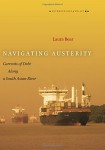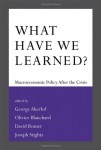[Policy] Videos
The book separates from other existing ones on the subject in providing an unparalleled angle penetrating into Washington’s covert and overt maneuvers and designs aiding and abetting a global supportive instrument of a terrorist organization which is motivated to destabilize Sri Lanka. The analyses and interpretations, based on the author’s deep knowledge and insights gained during his tenure at the U.S. Department of State, not found in other works. The link the author discovered between Washington’s settled mindset developed in the 1980s and 1990s on Sri Lanka’s national issues, and post-2009 renaissance of the global supportive instrument of a terrorist group is unique to the readers. The interpretations and analyses of discovered evidence of this cohabitation, and Washington’s adventurism are aptly reflected in the title of the book: Tamil Tigers’ Debt to America: U.S. Foreign Policy Adventurism and Sri Lanka’s Dilemma. This book gives a unique analyses and interpretation of Washington’s foreign policy adventurism using the insights the author gained during his tenure at the U.S. State Department. This insider’s account and alarming analysis have disclosed a development – largely due to Washington machinations – that enabled operative organizations within the Tamil Diaspora to replace the vanquished Tigers and diplomatically continue its secessionist agenda in Sri Lanka. Washington’s disappointment in its failure to salvage Sri Lanka’s Tamil Tiger leadership – which it believed represented the sentiments of the minority Tamils – to use it as a pressure group to influence changes in Sri Lanka was thwarted by the movement’s annihilation in 2009. To avenge the foreign policy setback, Washington created a conducive atmosphere – through its foreign policy advocacy – that facilitated the emergence of a stronger, determined and more coordinated Tamil Diaspora – once effectively functioned to sustain the LTTE – as a global diplomatic movement. One cannot recall in recent memory how a totally annihilated lethal terrorist movement along with its superior military power was resurrected and emerged as a global political movement with a determination to achieve the same objective – a separate state for the minority ethnic Tamils in the north-east region of Sri Lanka. The book’s disclosed link facilitates the readers to understand this scenario.
The current approach to resolving sovereign debt crises does not work: sovereign debt restructurings come too late and do too little. Though they impose enormous costs on societies, these restructurings are often not deep enough to provide the conditions for economic recovery (as illustrated by the Greek debt restructuring of 2012). And if the debtor decides not to accept the terms demanded by the creditors, finalizing a restructuring can be slowed by legal challenges (as evidenced in Argentina).
A fresh start for distressed debtors is a basic principle of a well-functioning market economy, yet there is no international bankruptcy framework for sovereign debts. While this problem is not new, the United Nations and the global community are now willing to do something about it. Providing guidance for those who intend to take up reform, this book assesses the relative merits of various debt-restructuring proposals, especially in relation to the main deficiencies of the current nonsystem. With contributions by leading academics and practitioners, the volume reflects the overwhelming consensus among specialists on the need to find workable solutions.
Navigating Austerity addresses a key policy question of our era: what happens to society and the environment when austerity dominates political and economic life? To get to the heart of this issue, Laura Bear tells the stories of boatmen, shipyard workers, hydrographers, port bureaucrats and river pilots on the Hooghly River, a tributary of the Ganges that flows into the Bay of Bengal and Indian Ocean. Through their accounts, Bear traces the hidden currents of state debt crises and their often devastating effects.
Taking the reader on a voyage along the river, Bear reveals how bureaucrats, entrepreneurs and workers navigate austerity policies. Their attempts to reverse the decline of ruined public infrastructures, environments and urban spaces lead Bear to argue for a radical rethinking of economics according to a social calculus. This is a critical measure derived from the ethical concerns of people affected by national policies. It places issues of redistribution and inequality at the fore of public and environmental plans. Concluding with proposals for restoring more just long term social obligations, Bear suggests new practices of state financing and ways to democratize fiscal policy. Her aim is to transform sovereign debt from a financial problem into a widely debated ethical and political issue. Navigating Austerity contributes to policy studies as well as to the understanding of today’s global injustices. It also develops new theories about the significance of state debt, speculation and time for contemporary capitalism. Sited on a single body of water flowing with rhythms of circulation, renewal and transformation, this ambitious and accessible book will be of interest to specialists and general readers.
Developing country debt crises have been a recurrent phenomenon over the past two centuries. In recent times sovereign debt insolvency crises in developing and emerging economies peaked in the 1980s and, again, from the middle 1990s to the start of the new millennium. Despite the fact that several developing countries now have stronger economic fundamentals than they did in the 1990s, sovereign debt crises will reoccur again. The reasons for this are numerous, but the central one is that economic fluctuations are inherent features of financial markets, the boom and bust nature of which intensify under liberalized financial environments that developing countries have increasingly adopted since the 1970s. Indeed, today we are in the midst of an almost unprecedented global ‘bust’ The timing of the book is important. The conventional wisdom is that the international economic and financial system is broken. Policymakers in both the poorest and the richest countries are likely to seriously consider how to restructure the international trade and financial system, including how to resolve sovereign debt crises in a more effective and fair manner. This book calls for the international reform of sovereign debt workouts which derives from both economic theory and real-world experiences. Country case studies underline the point that we need to do better. This book recognizes that the politics of the international treatment of sovereign debt have not supported systemic reform efforts thus far; however, failure in the past does not preclude success in the future in an evolving international political environment, and the book thus puts forth alternative reform ideas for consideration.
The Constitution grants Congress the power “to lay and collect taxes, duties, imposts, and excises.” From the First Congress until today, conflicts over the size, role, and taxing power of government have been at the heart of national politics. This book provides a comprehensive historical account of federal tax policy that emphasizes the relationship between taxes and other components of the budget. It explains how wars, changing conceptions of the domestic role of government, and beliefs about deficits and debt have shaped the modern tax system. The contemporary focus of this book is the partisan battle over budget policy that began in the 1960s and triggered the disconnect between taxes and spending that has plagued the budget ever since. With the federal government now facing its most serious deficit and debt challenge in the modern era, partisan debate over taxation is almost completely divorced from fiscal realities. Continuing to indulge the public about the true costs of government has served the electoral interests of the parties, but it precludes honest debate about the urgent task of reconnecting taxes and budgets.
Product Features
- Used Book in Good Condition
Since 2008, economic policymakers and researchers have occupied a brave new economic world. Previous consensuses have been upended, former assumptions have been cast into doubt, and new approaches have yet to stand the test of time. Policymakers have been forced to improvise and researchers to rethink basic theory. George Akerlof, Nobel Laureate and one of this volume’s editors, compares the crisis to a cat stuck in a tree, afraid to move. In April 2013, the International Monetary Fund brought together leading economists and economic policymakers to discuss the slowly emerging contours of the macroeconomic future. This book offers their combined insights. The editors and contributors–who include the Nobel Laureate and bestselling author Joseph Stiglitz, Federal Reserve Vice Chair Janet Yellen, and the former Governor of the Bank of Israel Stanley Fischer–consider the lessons learned from the crisis and its aftermath. They discuss, among other things, post-crisis questions about the traditional policy focus on inflation; macroprudential tools (which focus on the stability of the entire financial system rather than of individual firms) and their effectiveness; fiscal stimulus, public debt, and fiscal consolidation; and exchange rate arrangements.
Albert Sbragia considers American urban government as an investor whether for building infrastructure or supporting economic development. Over time, such investment has become disconnected from the normal political and administrative processes of local policymaking through the use of special public spending authorities like water and sewer commissions and port, turnpike, and public power authorities.
Sbragia explores how this entrepreneurial activity developed and how federal and state policies facilitated or limited it. She also analyzes the implications of cities creating innovative, special-purpose quasi-governments to circumvent and dilute state control over city finances, diluting their own authority in the process.
Product Features
- Used Book in Good Condition







